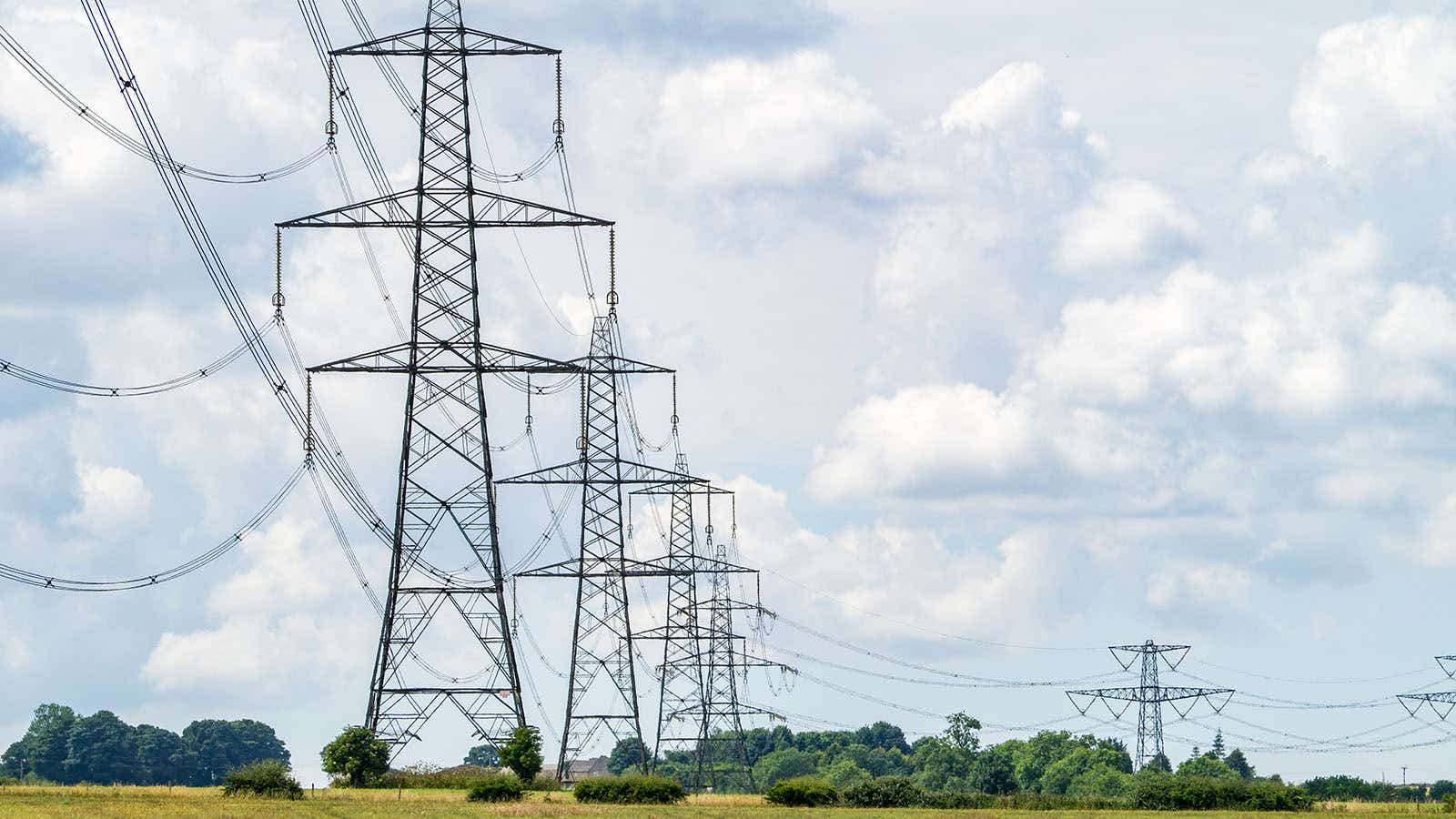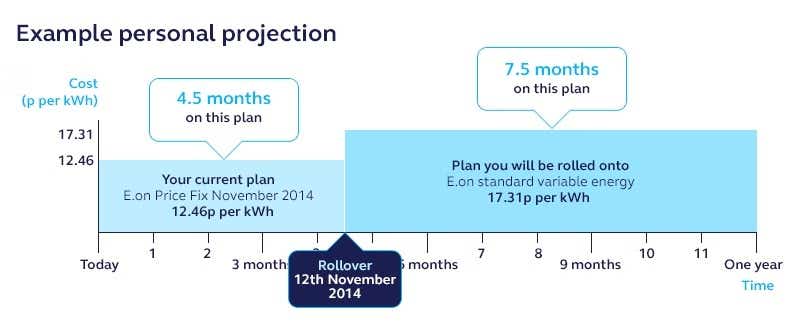- Uswitch.com>
- Gas and Electricity>
- Guides>
- Your energy personal projection explained - Uswitch
Your energy personal projection explained
Personal projection and the Retail Market Review
As the regulatory body overseeing domestic energy, Ofgem launched a review of the market with the aim to pinpoint and rectify what was creating a complex and confusing market in which consumers were very disengaged.
In the spring of 2014, several new requirements were placed on both suppliers and energy switching sites, including providing a way for customers to understand what their energy costs would be in the coming year — i.e. their 'personal projection'.
What is personal projection and how is it calculated?
Simply put, a personal projection is a calculation of your future personal energy costs over the next 12 months.
Personal projection calculations are based on your current energy plan and its prices, including any known future price changes affecting that plan — for example, when a price rise has been announced but will not take effect for several weeks.
Personal projections and fixed plans
If your plan has an end date (e.g., you’re on a fixed price plan), your personal projection will also factor in what your energy costs will be changed to once that fixed plan ends and you are rolled on to a different plan. Essentially, a personal projection assumes you do nothing when your plan ends.
It’s worth keeping in mind that those with a plan end date will have a fluctuating personal projection figure due to the fact that this number is a blend of the remaining days or weeks on their current plan, and the amount of time they will be on the new plan in the following 12 months.
For example, let's say you are on a fixed plan that ends 31 December 2014. In June, your personal projection may be £900 for the next 12 months. However, in September, your personal projection will be considerably higher — perhaps £1,200 — because you have less time remaining on the cheaper fixed plan, and more time on the more expensive plan you will be rolled on to.
While it's required for sites like Uswitch to calculate your potential savings using this personal projection figure, you can choose to compare against the costs of only your current plan, too. Simply click the "What will I pay?" link from your results, and choose the "Compare costs to my current plan" tab.
Criticism of personal projection
As mentioned, the method assumes a customer does nothing. Therefore, the more expensive rollover plan is included in the calculation of that customer’s spend over the next 12 months.
This assumption led to criticism from both savvy consumers and consumer protection groups, which claimed this method led to a misleading comparison and even an inflated savings figure.
Uswitch took such feedback on board and, in 2016, introduced a secondary calculation option so that customers could compare future costs using their current plan’s cost only.
Read more:

Gas and electricity standing charges - Uswitch
What is a standing charge for gas and electricity? All energy tariffs offered have a daily standing charge. The charge will cover the fixed costs of supplying your home with both gas and electricity, you then pay your usage on top.
Learn more
Gas and electric costs: understanding kWh - Uswitch
What is the gas and electricity cost per kwh in the UK? To understand what a kWh costs, you first need to know what the difference between a kWh and a kW is. Discover all you need to know about understanding electricity price per kWh.
Learn more
How much energy do I use? - Uswitch
Discover how to calculate your monthly energy usage. Work out how much gas and electricity you use and how much you could save by switching energy suppliers.
Learn more

